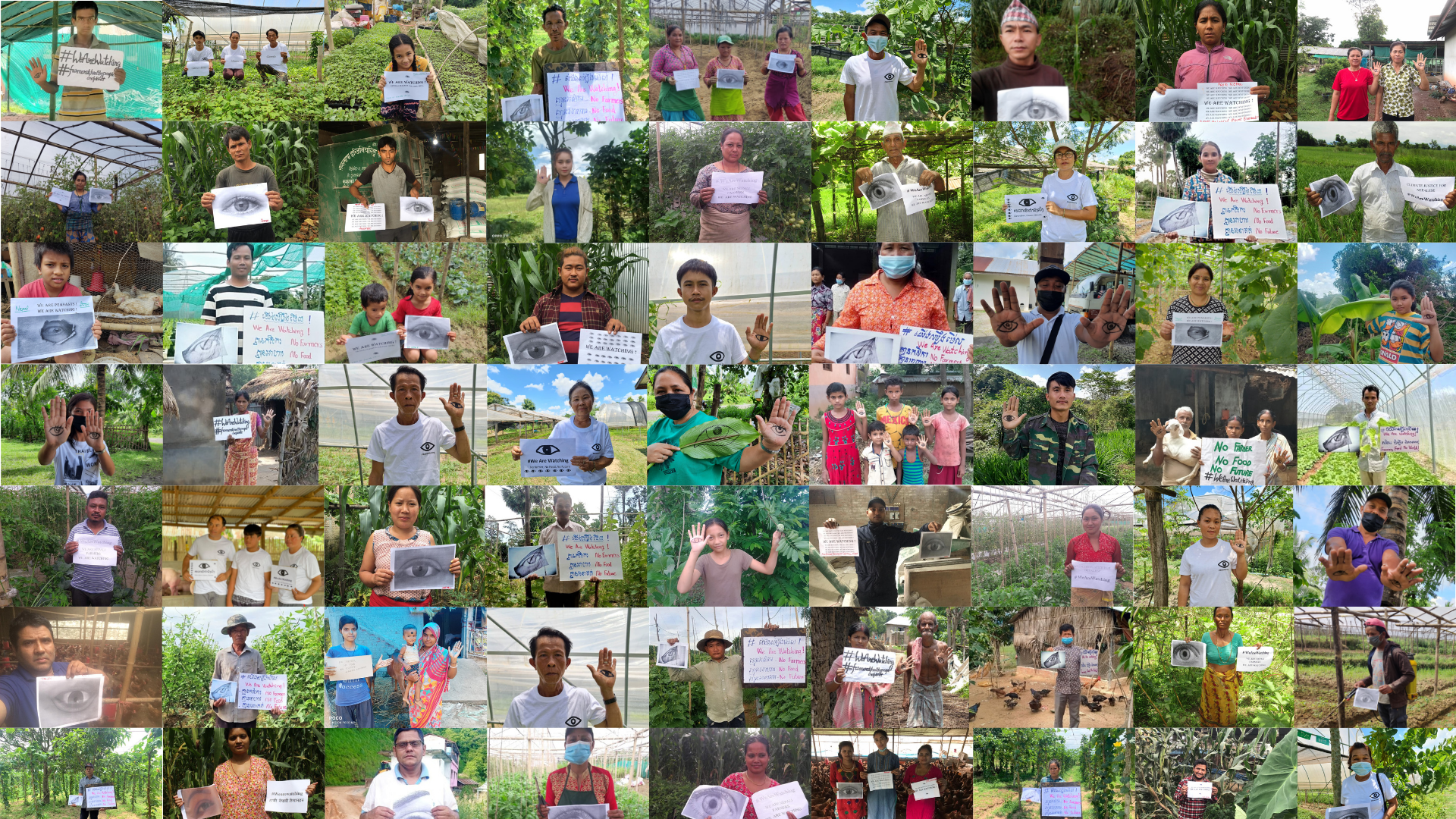“We, farmers in Asia, join the global call to action against climate change. We call on the world leaders attending the COP26 to recognize family farmers as solution providers and to invest in establishing a Farmers’ Empowerment and Climate Resiliency Trust Fund. We are watching you, so act now. Act now, for our future.”
Climate change is one of the major factors affecting agriculture globally. Climate is considered as one of the primary determinants of agricultural productivity, hence, crop yields are directly affected by changes in climatic factors such as temperature and precipitation, as well as the frequency and intensity of extreme events such as floods, tropical cyclones, and droughts.
Given the fundamental role of agriculture in Asia, the effects of climate change on crop production threaten the economic progress in the region and the welfare of family farmers and the greater population.
“Climate change is real. Unpredictable weather patterns increase pests and diseases and stunt the growth of plants and crops. Too much rain or too much sun makes plants die. As a result, yields go down and our incomes are reduced. Climate change and related disasters can spell the loss of properties, livelihoods, health, displacement,” said Esther Penunia, secretary-general of the Asian Farmers’ Association for Sustainable Rural Development (AFA).

In recent years, the climate has experienced several changes, with increasing mean temperatures and altered rainfall patterns across various regions. These climatic trends are projected to continue in the future. Changes in monsoon patterns, particularly the timing and distribution of rainfall, will also affect the hydrological cycles. Furthermore, the Fifth Assessment Report (AR5) of the Intergovernmental Panel for Climate Change (IPCC) found significant increases in heatwave frequency in some countries such as India, as well as greater risk from tropical cyclones, sea-level rise, and coastal flooding, which can affect vital infrastructure and resources. More so, there is broad consensus among the literature that crop yields will decrease in future climates as early as 2030.
Aside from the risks associated with climate change, family farmers in the region are particularly vulnerable because of their socio-economic realities. A review of development indicators such as the Human Development Index (HDI), GDP, and the Fragile States Index highlights the continued incidence of poverty and inequality of countries in the region. For instance, more than half of India’s population (53.7%) is multi-dimensionally poor and dependent on climate-sensitive livelihoods such as agriculture. Its population faces gender inequality, adult illiteracy, and child mortality. The same story can be seen in other countries in the region.

But what the world needs to know is that farmers are important in the fight against climate change. Farmers are the first to notice changes as they are also the first to receive the impact of climatic changes. To adjust to the changing climate and weather, farmers discover from experience, and consequently, shift to farming methods that are resilient to the changing weather and adaptive to the soil or environment conditions. For instance, AFA members Pambansang Kilusan ng mga Samahang Magsasaka (PAKISAMA) in the Philippines, Lao Farmer Network (LFN) in Lao PDR, and Agriculture and Farmer Federation of Myanmar (AFFM) in Myanmar promote and implement integrated, diversified organic farming systems. However, smallholder farmers need support to sustain and scale up these practices that benefit the environment and adapt to climate change.
To join the global call to action against climate change, farmers in Asia are making their voices heard by joining the We Are Watching campaign.
We Are Watching is a monumental eye, made up of thousands of portraits contributed from 190 countries. It flies high above cities on a flag the size of a 10-story building. Raised at key climate events to hold leaders accountable as they decide the future of our planet, its message is crystal-clear: the eyes of the world are upon you. Artivist Dan Archer’s globally participative work first flew at Madrid’s COP25 UN Climate Change Conference. Its ongoing mission is to take the eyes of the world around the globe. (Know more about this campaign at https://wearewatching.org/)
Seven (7) farmers organizations (FO) in seven countries in Asia lead various activities in their respective countries to call the attention of their leaders to act now against climate change and to recognize farmers are solution providers. The activities include We Are Watching flag/banner raising, mural paintings, cultural activities, among others. Each FO will also conduct a focus group discussion involving farmers, government, CSOs, NGOs, and media. These activities will continue to roll out until the COP26 in November 2021.
The We Are Watching campaign is supported by the Asian Farmers’ Association for Sustainable Rural Development (AFA), the Asia-Pacific Farmers Program (APFP), and the Forest and Farm Facility (FFF).
For more information, go to asianfarmers.org.

____
The focus group discussions are scheduled as follows:
| Date & Time | Host Farmers Organization | Contact Person |
| 1 August 2021 15:00 GMT+5:30 (India) | Institute For Motivating Self Employment (IMSE) | Pooja Moitra |
| 2 August 2021 09:00 GMT+7 (Lao PDR) | Lao Farmer Network (LFN) | Phoutthasinh Phimmachanh |
| 3 August 2021 10:00 GMT+6 (Bangladesh) | COAST Foundation | Md. Mujibul Munir |
| 4 August 2021 10:00 GMT+8 (Philippines) | Kalipunan ng mga Maliliit na Magniniyog ng Pilipinas (KAMMPIL) | Frank Roy Ribo |
| 5 August 2021 08:00 GMT+7 (Cambodia) | Farmer and Nature Net (FNN) | Chhong Sophal |
| 5 August 2021 11:00 GMT+5 (Pakistan) | Agribusiness Support Fund (ASF) | Aeyesha Gulzar |
| 5 August 2021 11:00 GMT+5:45 (Nepal) | All Nepal Peasants’ Federation (ANPFa) | Nahendra Khadka |
The focus group discussion will be conducted in each country’s local language. If interested to join, please contact afamyline@asianfarmers.org and afa@asianfarmers.org.

Comments are closed